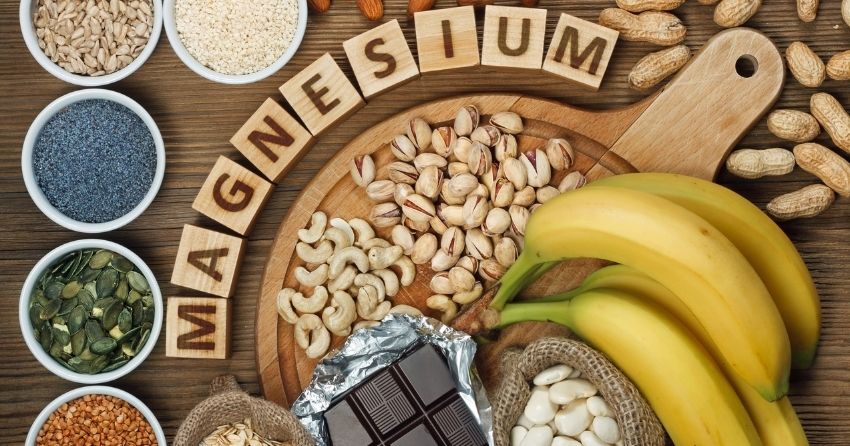Higher Dietary Magnesium Intake Linked to Larger Brain Volume

-
People who consume more than 550 mg of magnesium each day have a brain age that is approximately one year younger than those consuming less than 350 mg.
-
A 41% increase in magnesium intake was linked to less age-related brain shrinkage, which is associated with better cognitive function.
-
Higher baseline dietary magnesium intake was associated with larger brain volumes, including in gray matter and both the left and right hippocampi—especially in women.
This article was posted on ScienceDaily.com: [may be edited for content or length]
More magnesium in our daily diet leads to better brain health as we age, according to scientists from the Neuroimaging and Brain Lab at The Australian National University (ANU).
The researchers say increased intake of magnesium-rich foods such as spinach and nuts could also help reduce the risk of [cognitive loss].
The study of more than 6,000 cognitively healthy participants in the United Kingdom aged 40 to 73 found people who consume more than 550 milligrams of magnesium each day have a brain age that is approximately one year younger by the time they reach 55 compared with someone with a normal magnesium intake of about 350 milligrams a day.
"Our study shows a 41 per cent increase in magnesium intake could lead to less age-related brain shrinkage, which is associated with better cognitive function and lower risk or delayed onset of [cognitive loss] in later life," lead author and PhD researcher Khawlah Alateeq, from the ANU National Centre for Epidemiology and Population Health, said.
"This research highlights the potential benefits of a diet high in magnesium and the role it plays in promoting good brain health."
It's believed the number of people worldwide who will be diagnosed with [cognitive loss disorders] is expected to more than double from 57.4 million in 2019 to 152.8 million in 2050, placing a greater strain on health and social services and the global economy.
"Our research could inform the development of public health interventions aimed at promoting healthy brain ageing through dietary strategies."
The researchers say a higher intake of magnesium in our diets from a younger age may safeguard against neurodegenerative diseases and cognitive decline by the time we reach our 40s.
"The study shows higher dietary magnesium intake may contribute to neuroprotection earlier in the ageing process and preventative effects may begin in our 40s or even earlier," Ms Alateeq said.
"This means people of all ages should be paying closer attention to their magnesium intake.
"We also found the neuroprotective effects of more dietary magnesium appears to benefit women more than men and more so in post-menopausal than pre-menopausal women, although this may be due to the anti-inflammatory effect of magnesium."
Participants completed an online questionnaire five times over a period of 16 months. The responses provided were used to calculate the daily magnesium intake of participants and were based on 200 different foods with varying portion sizes. The ANU team focused on magnesium-rich foods such as leafy green vegetables, legumes, nuts, seeds and wholegrains to provide an average estimation of magnesium intake from the participants' diets.
Story Source:
Materials provided by Australian National University. Note: Content may be edited for style and length.
Journal Reference:
- Khawlah Alateeq, Erin I. Walsh, Nicolas Cherbuin. Dietary magnesium intake is related to larger brain volumes and lower white matter lesions with notable sex differences. European Journal of Nutrition, 2023; DOI: 10.1007/s00394-023-03123-x





